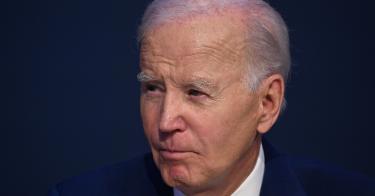The Biden administration has reached a dangerous deal with Iran to release five American hostages in exchange for five Iranians held in U.S. jails and at least $6 billion of Iranian assets frozen in South Korea.
The hostage deal is alarming because it rewards Tehran for seizing American citizens and encourages it and other outlaw regimes to take more hostages. By inciting hostage-taking, a form of state-supported human trafficking, the administration risks expanding the threats faced by American citizens abroad and boosts the asking price for hostages.
When the Obama administration paid approximately $1.5 million to Iran to gain the release of three Americans kidnapped along the Iran-Iraq border in 2009, the price amounted to about $500,000 per hostage. In 2016, the administration paid $1.7 billion and exchanged seven jailed Iranians for five American hostages, about $340 million per hostage.
Predictably, Iran then seized more hostages. The Trump administration secured the release of some of those hostages without ransom payments, relying instead on swapping prisoners.
>>> Biden’s Hostage Deal Would Boost Iran’s Threats
But the ransom payment for the latest batch of hostages has soared to about $1.2 billion per hostage. This is a disturbing trend that is likely to get worse.
The Biden administration asserts that the $6 billion ransom can only be used for humanitarian purposes, but that payment will free up funds that the regime can use for any purpose it chooses, and diversions are unlikely to be detectable. The money will bolster Iran’s embattled dictatorship, provide it with additional resources to violently repress its own people, and boost the threat posed by its missiles, drones, proxy groups, and advance its threshold nuclear weapons program.
Worse, the $6 billion ransom paid for the hostages also serves as a down payment for the emerging “informal, unwritten agreement” that President Joe Biden naively hopes will defuse growing tensions over Iran’s nuclear advances, at least until after the 2024 presidential election. His administration already has relaxed the enforcement of sanctions against Iran in a bid to revive nuclear negotiations that Tehran withdrew from last year.
Rather than the “longer and stronger” nuclear deal promised by the Biden administration when it came into office, the resulting agreement would be nonbinding, weaker than even the flawed 2015 nuclear deal, and easily discarded at Tehran’s convenience.
Moreover, Biden’s “unwritten agreement” amounts to an illegal end-run around Congress by granting Tehran sanctions relief without allowing the lawmakers to review an agreement, as stipulated by the Iran Nuclear Agreement Review Act, the 2015 law that requires the president to submit such an arrangement to Congress.
Such a backroom deal would do nothing to address the long-term dangers of Iran’s nuclear weapons program, ballistic missile advances, and state-sponsored terrorism, not to mention the regime’s threats to assassinate former U.S. officials, threats to “wipe Israel off the map,” increasing malign activities in the Western Hemisphere and Iran’s growing strategic ties to China and to Russia, which Tehran has supported in Ukraine by providing armed drones.
It's Deja Vu all over again.
Iran’s radical Islamist regime is not likely to be appeased by the billions of dollars offered by Biden, any more than it was by the ransoms offered by the Obama administration when Biden was vice president.
>>> Undermining Joint Russian–Iranian Efforts to Threaten U.S. Interests
Such appeasement will undermine long-term U.S. national security interests, not advance them. It will reward the aggressive regime in Tehran with billions of dollars of sanctions relief that will embolden it, enable future aggression, encourage more hostage-taking, and expose American citizens to greater risks.
Biden also is repeating President Jimmy Carter’s mistakes during the 1979-1981 Iranian hostage crisis. President Carter undermined the U.S. negotiating position: “He repeatedly made concessions in advance to the Iranians without concrete guarantees that he would extract concessions from them in return. As a result, the White House made one retreat after another, sacrificing its own bargaining leverage and the President's already depleted credibility in the process.”
Unfortunately, President Biden appears to be traveling down the same path. His administration turns a blind eye to Iran’s mounting threats to Israel while working harder to integrate Iran into the region than integrating Israel into the region by expanding the Abraham Accords to include Saudi Arabia and other Arab states.
Congress must exercise its oversight responsibilities to examine the implications of Biden’s hostage deal, as well as his administration’s broader negotiations with Iran, which amount to little more than kicking a can of nuclear worms down the road.
This piece originally appeared in Human Events



